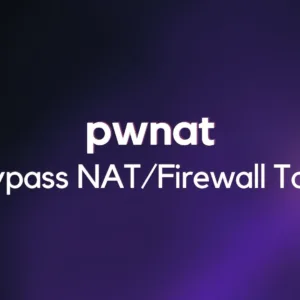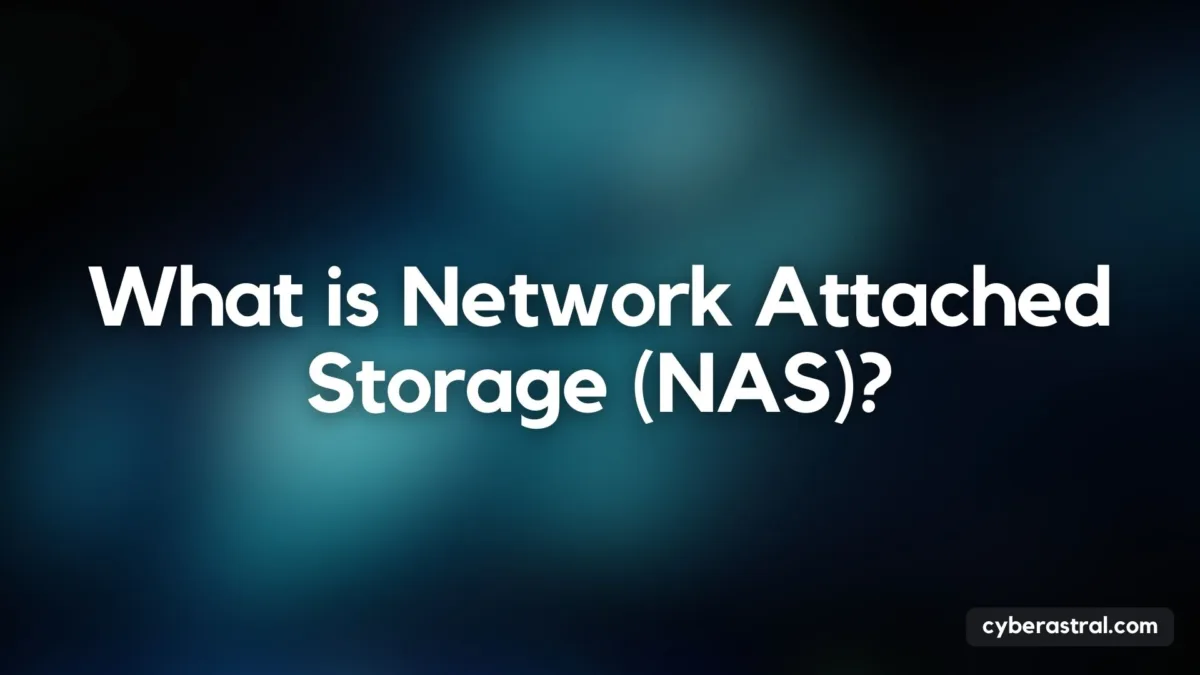What is NAS?
Network Attached Storage (NAS) is a dedicated file storage device that provides local-area network (LAN) nodes with file-based shared storage through a standard Ethernet connection. Unlike traditional storage solutions like external hard drives or USB flash drives that are directly attached to a single computer, NAS devices are standalone units that connect to a network, allowing multiple users and devices to access stored data simultaneously.
How Does NAS Work?
NAS operates on its own network, usually through a router or switch, and is managed independently from other devices on the network. It typically runs its own operating system and file management software, enabling users to access files remotely over the network. Its devices often come equipped with multiple hard drive bays, allowing users to install and configure multiple hard drives in various RAID configurations for data redundancy and performance optimization.
Users can access files stored on a NAS device through various protocols such as Network File System (NFS), Server Message Block (SMB), or File Transfer Protocol (FTP), depending on the NAS device’s capabilities and configuration. Additionally, many NAS devices offer web-based interfaces or dedicated software applications for easy management and configuration.
Home NAS and Enterprise NAS
Scale
- Home NAS: Typically designed for personal or small-scale use, home NAS solutions are geared towards individuals or families needing centralized storage for personal files, media, backups, and perhaps some light streaming or file sharing among a few devices.
- Enterprise NAS: Enterprise NAS solutions are built to handle large volumes of data and support hundreds or even thousands of users accessing data simultaneously. They are designed to scale easily as storage needs grow, often incorporating advanced clustering or virtualization technologies for seamless expansion.
Performance
- Home NAS: Home NAS devices usually offer moderate performance suitable for home use, providing enough speed for streaming media, backing up files, and accessing documents. They typically use consumer-grade components and may not prioritize high-speed data transfer.
- Enterprise NAS: Enterprise NAS solutions are engineered for high-performance computing environments, offering faster processors, higher-speed networking interfaces, and support for advanced storage technologies like SSD caching or tiered storage. They are optimized for demanding workloads such as database hosting, virtualization, and content delivery.
Features
- Home NAS: Home NAS devices often come with basic features such as file sharing, automatic backups, media streaming, and remote access via web or mobile apps. They may lack advanced data management features and may not support enterprise-level protocols or integration with complex IT environments.
- Enterprise NAS: Enterprise NAS solutions are packed with a wide range of features designed to meet the needs of large organizations. These may include advanced data deduplication, snapshotting, encryption, compression, thin provisioning, and integration with enterprise storage management tools. They also offer robust security features and compliance certifications to ensure data integrity and regulatory compliance.
Cost
- Home NAS: Home NAS devices are generally more affordable upfront, with prices ranging from a hundred to a few hundred dollars, depending on the capacity and features. However, additional costs may arise for upgrading storage capacity or adding advanced features.
- Enterprise NAS: Enterprise NAS solutions come with a higher upfront cost due to their advanced hardware, software, and support offerings. Prices can vary widely depending on factors such as storage capacity, performance requirements, redundancy options, and licensing fees for advanced features. However, they often provide a better return on investment over time by offering superior performance, scalability, and reliability for mission-critical data.
Home NAS Suggestions
Synology 2-Bay DiskStation DS223j (Diskless)
Pros:
- Easy to set up
- Performs well for basic tasks
- Quiet
- Affordable
- Versatile
- Good for backing up data
- Runs Plex media server well
- Integrates with Active Directory
Cons:
- Slow for some tasks
- Not ideal for photo storage
- Synology cloud storage not recommended
- Limited usability with some features
Price: 188$
Pros
- Easy to add RAM and disks
- Secure
- Offers file sharing and collaboration features
- Offers data backup solutions
- Offers media streaming capabilities
Cons
- Requires some basic hardware knowledge for setup
- Lacks some features of higher-end NAS devices
- Expensive compared to lower-end NAS devices
Price: 295$
Asustor Flashstor 6 FS6706T – 6 Bay All-SSD NAS Storage
Pros:
- Diskless design, which means you can add your own storage drives
- Six bays for M.2 solid state drives, which can provide fast performance
- Can be used for a variety of purposes including media storage and content creation
- 3-year warranty
Cons:
- Does not include any storage drives, so you will need to purchase them separately
- May be more expensive than some other NAS devices on the market
Price: 450$
Enterprise NAS
HPE ProLiant DL360 Gen11 1U Rack Server
Pros:
Performance
Scalability
Reliability
Manageability
Energy Efficient
Cons:
Cost
Noise and Heat
Complexity
Limited Expansion
Support Dependency
Price: 3,490$
Asustor Lockerstor 10 AS6510T – 10 Bay NAS
Pros:
- Lots of storage space: With 10 bays, this NAS offers a lot of storage capacity for your data.
- Expandable: You can add more storage to the NAS as your needs grow.
- Well-built and reliable: Users report that the NAS is well-built and reliable.
- Good performance (according to some users): Some users say that the performance of the NAS is very good.
- Ecryption
- NVMe Support
Cons:
- No Replication
- Expensive: This NAS is on the expensive side.
- RAM can be difficult to upgrade: Upgrading the RAM in this NAS can be difficult.
- Performance can be slow (according to some users): Some users say that the performance of the NAS can be slow.
Price: 1,219$
HPE ProLiant DL360 Gen11 1U Rack Server
Pros:
- Powerful: Ideal for large businesses with demanding storage needs.
- Enterprise-grade features: Includes high-quality hard drives, cloud integration, and iSCSI virtualization for flexible data management.
- Data protection: RAID support ensures data redundancy and minimizes risk of loss.
- Speedy performance: Quad-core processor and a 10GbE port enable fast data transfer speeds.
- Scalable storage: You can add more hard drives as your storage needs grow.
Cons:
- Inconsistent product descriptions: There have been reports of discrepancies between the advertised storage capacity and the actual product received.
- Quality control concerns: Some users have received malfunctioning units.
Price: 4,199$











